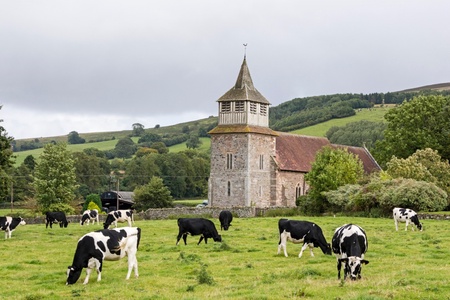
The BBC is reporting comments by Professor Ian Boyd, the government's outgoing Chief Environment Scientist, that the UK should address climate change by reducing livestock numbers and intensifying animal agriculture. He suggests we should increase growth rates of farmed animals and shorten their lives in order to reduce methane emissions from animal agriculture. In response, Minette Batter of the NFU is quoted in the same article arguing that numbers of livestock raised extensively could increase, and the same growth rates could be achieved through further selective breeding.
CEFAW's recent submission to the Defra consultation on a national food strategy argues that the future of UK food should include a strong commitment to providing a good life for farmed animals. The animals we raise for food deserve lives in which they can flourish according to the capacities, characteristics, activities, social relationships, reproductive and rearing processes, and life-expectancies particular to their species.
The intensification of animal agriculture in recent decades already subjects many farmed animals to impoverished lives in monotonous environments. Selective breeding for productive efficiency increases their physiological stress and weakens their ability to flourish. Directing their bodies towards this single goal is like being permanently under the extraordinary training and dietary regime of an Olympic athlete. Their capacity to enjoy a good life is inevitably compromised as their bodies and environments are reshaped to make them more efficient units of production.
The further intensification proposed by Professor Boyd will worsen farmed animal welfare. Farmed animals will be kept in impoverished environments that do not allow the expression of preferred species behaviours. Their increased growth rates will further increase their physiological stress. The further shortening of their lives will give them less opportunity to live out the kind of life that is characteristic of their species. Together, these changes mean they will have much less capacity to flourish as members of their species.
The proposals of the NFU envisage increasing livestock numbers kept in extensive environments. Their emphasis on shifting away from intensive modes of farming animals is helpful and would result in improved farmed animal welfare in comparison both to what is happening currently and to Professor Boyd's proposal. Their aim of matching the growth rates and shortened lives of intensive farmed animal systems, however, shares the some of the disadvantages of further intensification: it would further increase the physiological stress of farmed animals and further curtail their brief lives.
CEFAW recognizes the urgent need for UK agriculture to play its part in meeting the UK's crucial climate commitments, but argues that we can choose to do so without worsening farmed animal welfare. The recent report of the RSA Food, Farming and Countryside Commission, Our Future in the Land suggests that it would be possible to meet climate targets without further intensifying animal agriculture through a transition towards farming a significantly lower number of animals extensively. This represents a win-win approach for farmed animal welfare and effective climate policy, with accompanying benefits for improved biodiversity from land released from food production.
UK agriculture needs to embark on a significant transition that will transform the UK landscape. But the transition that is required needs to include a commitment to good lives for UK farmed animals alongside reduced greenhouse gas emissions and a food strategy that rewards farmers appropriately for producing food, enabling the flourishing of the animals in their care, and caring for the environment.


